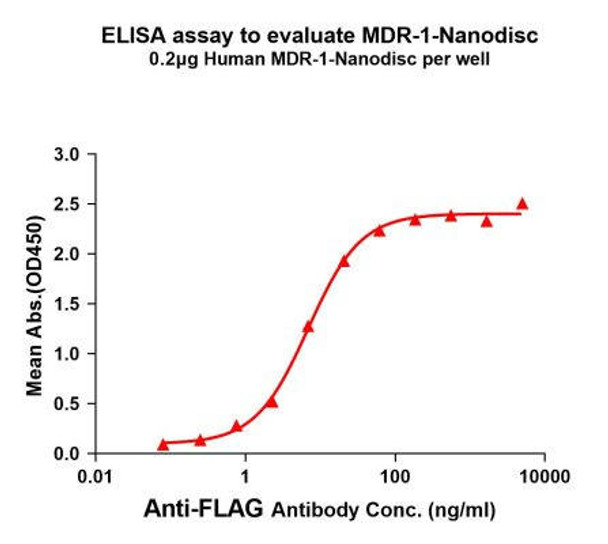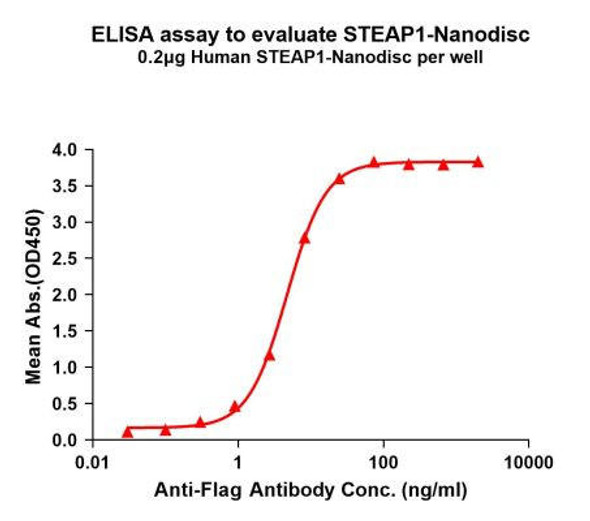Nanodisc Human MDR-1 Protein (HDFP012)
- SKU:
- HDFP012
- Product Type:
- Recombinant Protein
- Protein Type:
- Full-Length Bioactive Membrane Protein
- Species:
- Human
- Uniprot:
- P08183
Frequently bought together:
Description
system_update_altDatasheet
| Product name | Human MDR-1 full length protein-synthetic nanodisc |
| Size: | 10ug |
| Product SKU: | HDFP012 |
| Product Category | Full Length Transmembrane Proteins |
| Target: | MDR-1 |
| Uniprot: | P08183 |
| Description: | Human MDR-1 full length protein-synthetic nanodisc |
| Molecular Weight: | The human full length MDR-1 protein has a MW of 141.5 kDa |
| Protein Family: | Druggable Genome, ES Cell Differentiation/IPS, Transmembrane |
| Protein Pathways: | ABC transporters |
| Storage & Shipping: | Store at -20°C to -80°C for 12 months in lyophilized form. After reconstitution, if not intended for use within a month, aliquot and store at -80°C (Avoid repeated freezing and thawing). Lyophilized proteins are shipped at ambient temperature. |
| Synonyms: | ABCB1; CD243; CLCS; GP170; MDR1; p-170; P-GP; PGY1 |
| Expression System: | HEK293 |
| Formulation: | Lyophilized from nanodisc solubilization buffer (20 mM Tris-HCl, 150 mM NaCl, pH 8.0). Normally 5% - 8% trehalose is added as protectants before lyophilization. Please see Certificate of Analysis for specific instructions. |
| Background: | The membrane-associated protein encoded by this gene is a member of the superfamily of ATP-binding cassette (ABC) transporters. ABC proteins transport various molecules across extra- and intra-cellular membranes. ABC genes are divided into seven distinct subfamilies (ABC1, MDR/TAP, MRP, ALD, OABP, GCN20, White). This protein is a member of the MDR/TAP subfamily. Members of the MDR/TAP subfamily are involved in multidrug resistance. The protein encoded by this gene is an ATP-dependent drug efflux pump for xenobiotic compounds with broad substrate specificity. It is responsible for decreased drug accumulation in multidrug-resistant cells and often mediates the development of resistance to anticancer drugs. This protein also functions as a transporter in the blood-brain barrier. Mutations in this gene are associated with colchicine resistance and Inflammatory bowel disease 13. Alternative splicing and the use of alternative promoters results in multiple transcript variants. |
| Delivery: | In Stock |
| Usage | Research use only |






